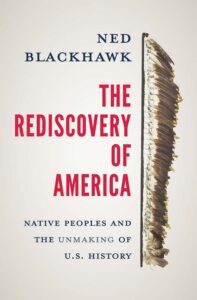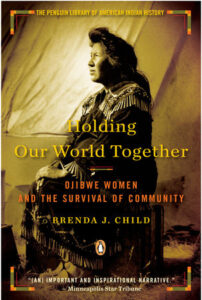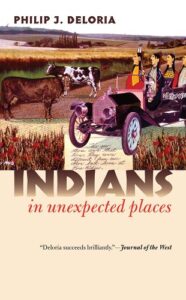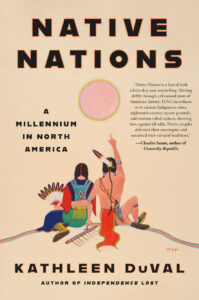In the nineteenth and early twentieth centuries, most histories of the United States either completely ignored Native Americans or depicted them as primitive and wild, as obstacles to European and white American settlement. In the second half of the twentieth century, mainstream histories began including Native Americans more seriously but usually portrayed them solely as victims, sadly doomed to fade with the rise of European colonies and the United States.
Article continues after advertisement
Today, there is a new wave of scholarship that seeks to include Native Americans—and Native nations—as full participants in the long span of American history, which starts long before any Europeans came to the Americas and continues to the present and into the future. My book Native Nations: A Millenium in North America, is part of this trend. It takes a broad view of Native American history, from around the year 1000 to the present day. The books I suggest below go deeply into Native American history, and all are written by Native authors.
*
David Treuer, The Heartbeat of Wounded Knee: Native America from 1890 to the Present
A finalist for the National Book Award, The Heartbeat of Wounded Knee brilliantly overturns the assumption that Native American history ends with the massacre at Wounded Knee in 1890, a date that past histories had pointed to as the end of Native Americans’ last stand against colonialism. Treuer, an Ojibwe scholar, teaches the reader an astounding amount of twentieth- and early twenty-first-century history through fascinating stories that reveal the resilience of Native America.

Ned Blackhawk, The Rediscovery of America: Native Peoples and the Unmaking of U.S. History
This eloquent and comprehensive book by a Yale history professor “rediscovers” the history of the United States and that of American Indians since the 1500s by showing that they are the same story. Blackhawk (Western Shoshone) follows the standard chronology of US history while detailing, era by era, how interactions between Native Americans and Europeans and their descendants in North America intersected with it. In this sweeping synthesis—which won a National Book Award—standard flashpoints of U.S. history take on new meaning.

Brenda J. Child, Holding Our World Together: Ojibwe Women and the Survival of Community
Women rarely get their deserved place in history books, but sometimes a book, by focusing on women, can change how we see the whole history. Child, a University of Minnesota professor and a citizen of the Red Lake Ojibwe, tells how Ojibwe women shaped Native American life through the ages. As we learn their stories, we understand that women “held their world together” even as the forces of colonialism tried to destroy Native families and nations.

Philip J. Deloria, Indians in Unexpected Places
A professor at Harvard, Deloria (Yankton Dakota) wrote this book to directly counter the myth that Native Americans are people of the past rather than modern human beings, who have changed with the times, just like everyone else. He presents image after image of Native Americans in the late nineteenth and early twentieth centuries doing the kinds of things that non-Natives at the time were insisting they couldn’t do: playing baseball, riding in automobiles, and singing opera.

Natalie Diaz, Postcolonial Love Poem
Ok, this one is not a traditional history book, but Diaz’s poems are some of the strongest stand against erasure and objectification that you can read. Diaz is Mojave and Akimel O’odham and is a professor at Arizona State. She writes in this Pulitzer Prize-winning volume, “I am doing my best to not become a museum of myself.”
__________________________________

Native Nations: A Millennium in North America by Kathleen DuVal is a finalist for the 2024 Cundill History Prize.
